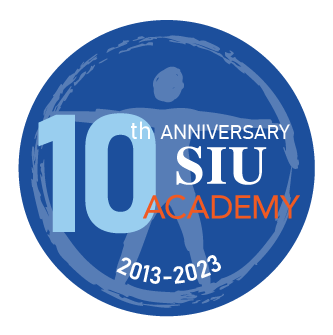Information for reviewers
The Société Internationale d’Urologie Journal (SIUJ) relies on peer reviewers to provide honest, timely, and unbiased expert appraisals of the strengths and weaknesses of manuscripts.
Agreeing to Review
Suitability: Although we try to ensure a good match between manuscripts and reviewers, it may be that we have asked you to review a paper you do not feel qualified to assess. In that case, please tell us why so we can send you more suitable manuscripts in future. If you can also recommend another expert to undertake the current review, we would be most grateful.
Timeliness: The publishing process is time-sensitive, so we would appreciate your agreeing to review a manuscript only if you are able to do so within the stated time.
Conflict of interest: If you think there are personal, financial, intellectual, professional, political, or moral concerns that could affect your ability to make an objective assessment (or could be perceived as doing so), please let the editorial office know before agreeing to undertake the review.
Single-blind process: It may help to know that authors are not told who has reviewed their manuscript, and SIUJ ensures that potentially identifying information is removed from comments sent to them.
Assessing the Manuscript
Appeal and relevance: Is the paper interesting to read? Is the content important to SIUJ readers?
Originality and topicality: Does the paper present new, innovative, or insightful information? Does it build on current information on this topic?
Clarity and focus: Is the purpose of the paper apparent or stated in the introductory section? Are any areas vague or difficult to understand? Are there any contradictions or inconsistencies? Are figures and tables useful and easy to interpret? Could the paper be more focussed or shorter?
Organization: Are ideas developed and related in a logical sequence? Are transitions between discussions smooth and easy to follow? Is the content consistent with the stated purpose of the paper?
Depth and scope: Do any areas need to be expanded or condensed? Is anything missing? Do figures and tables complement rather than duplicate the text?
Composition: Is the paper easy to understand? It may not be elegantly written, but does it clearly convey the necessary information? If not, what are the particular problems?
Accuracy and consistency: Is any information in the paper inaccurate? Are interpretations and conclusions sound? Is referenced literature accurately characterized? Are there mathematical or text errors in figures or tables? Does the abstract reflect the information in the main body of the paper (including tables and figures)?
Balance: Are all sides of an issue presented and referenced? Are facts distinguished from assumptions and opinions? Is there undue bias towards certain practices, procedures, or products?
Attribution: Are relevant sources provided and properly acknowledged?
References: Do the references represent authoritative sources of information? Have the most current references on this topic been included? Are references complete and properly formatted?
Misconduct: If you are concerned about potential ethical violations in the conduct of the study or in the preparation of the manuscript, or if you are aware of substantial similarity between the manuscript you are reviewing and a published paper (or a paper under consideration elsewhere), please let the editorial office know.
Confidentiality: A manuscript under review remains the property of its authors and is a privileged communication. Please do not discuss the manuscript with anyone else. If you think a colleague would be able to offer a useful assessment of a particular aspect of the paper, please contact the editorial office before sharing any information from the manuscript. Please do not retain a copy of the manuscript once you have submitted the review.
In summary, we ask reviewers to comment on errors of fact or interpretation, to flag inaccurate or ambiguous statements, to point out omissions and redundancies, and to note where clarity is lacking. The more specific and detailed the criticism, the more helpful it is to the author(s) and the editors.
We are very grateful that you are willing to offer your time and expertise as a reviewer to help us maintain the high quality of papers published in SIUJ.
Frequently Asked Questions
Why have you asked me to review this manuscript?
You are an expert on the subject addressed in the paper, or you have other specialized skills or knowledge that equip you to make a fair and accurate assessment of the paper. If we are mistaken (if we have incorrectly identified your area of expertise), please let us know. You can reach us at info@siuj.org or at 514-875-5665 ext. 26.
What if I am not able to complete the review?
Please tell us as soon as possible. You can simply click the link in the invitation email we sent you, or you can email us at info@siuj.org.
I can review the manuscript, but I cannot do it by the deadline you have given me. Can I have an extension?
We do consider extensions. Please contact us as soon as you think you might not be able to meet the deadline.
I do not have time to review manuscripts for the next few months, but I would like to continue as a reviewer for SIUJ. Is that possible?
Of course. We do not want to lose good reviewers—and we do understand that people have busy lives. Email us at info@siuj.org with a list of the dates on which you will not be available.
I agreed to review a manuscript, but now I realise I will not have time/have a potential conflict/lack the specific expertise required. What do I do?
The short answer is “Let us know as soon as possible.” We understand that it is not always possible to anticipate demands on your time; and as you see only the abstract before agreeing to review a paper, a conflict of interest may not be immediately apparent. Our main concern in this situation is to delay the review as little as possible—the sooner you let us know, the sooner we can search for other reviewers.
Why am I being asked to review manuscripts that are not in my area of expertise?
It may be that your profile in the online system is inaccurate or incomplete. You can check and make amendments by logging into your account at siuj.org and clicking on your name and image at the top right corner of the screen and selecting “View Profile.” Once in your profile, go to the “Roles” tab and scroll down to add or amend your “Reviewing interests.”
If you would prefer not to review manuscripts on certain subjects—or by certain authors—please note that. If you are not sure that your profile adequately captures your preferences, contact us at info@siuj.org.
We depend on our reviewers, so we want to make the process as easy and agreeable as possible. Please talk to us; tell us what you need.
Can I ask a colleague to assist with the review? Or can I use it as a teaching tool with a student or trainee?
Manuscripts under review remain the property of their authors and should be treated as confidential information. If you think a colleague would be able to offer a useful assessment of a particular aspect of the paper, we would be very pleased to hear about it. Let us know, and we will invite your colleague to review the paper—that way, we can ensure that each reviewer is properly credited for his or her contributions. If you would like to involve a student in the review process, please contact the editorial office before sharing any information from the manuscript.
Should I correct spelling and grammar mistakes?
By all means, draw our attention to mistakes that make it difficult to understand what is being said (or to the persistent misspelling of a particularly arcane term that may escape our notice), but for the most part, it is your expert assessment of the content we are counting on. If the paper is accepted, our editors will correct mistakes and infelicities of spelling, grammar, and usage.
Can I make my comments and corrections in the manuscript using track changes and comments?
No. Comments in the manuscript will identify you to the authors, and comments and notes inserted throughout the document will not give us the complete and cohesive picture we would get from a separate narrative. There are line numbers in the manuscripts—making reference to these will make the relevant text easy to find.
Why have you published a paper that I recommended should be rejected?
It happens very seldom, but occasionally we do publish a paper that a reviewer has recommended we should reject outright.
When there is strong disagreement among reviewers, the author may be asked to make extensive revisions before the paper is sent to additional reviewers. Sometimes, papers are published because they make a sufficiently important contribution to offset their shortcomings (which we ask the authors to make explicit).
Anything else reviewers should keep in mind?
Be specific: rather than saying there are inconsistencies between the abstract and the body of the text, tell us exactly what is different.
Be organized: An undifferentiated list of criticisms (without any indication of level of importance or pervasiveness) is not as helpful as a well-organized set of comments grouped under headings that relate to those in the paper and divided into major and minor concerns.
Remember you are not alone: We ask more than one person to review most papers, so let us know if there are aspects (perhaps the statistics?) you are not sure about; more likely than not, we have asked another reviewer to work on that.
Further Information
International Committee of Medical Journal Editors (ICMJE). Roles and responsibilities in the submission and peer-review process. Available at: http://www.icmje.org/recommendations/browse/roles-and-responsibilities/responsibilities-in-the-submission-and-peer-peview-process.html. Accessed February 12, 2020.
Committee on Publishing Ethics (COPE). Ethical guidelines for peer reviewers. Available at: https://publicationethics.org/resources/guidelines-new/cope-ethical-guidelines-peer-reviewers. DOI: https://doi.org/10.24318/cope.2019.1.9. Accessed February 12, 2020.
European Association of Science Editors (EASE). Peer review toolkit. Available at: https://ease.org.uk/publications/peer-reviewer-toolkit/. Accessed February 12, 2020.











